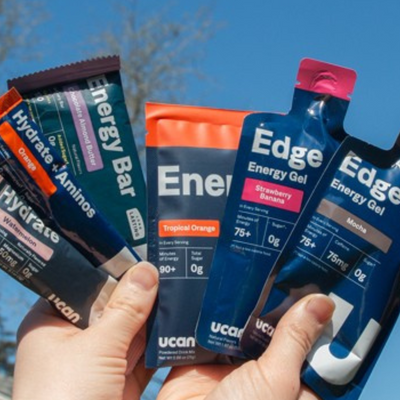What is Muscular Endurance?
Muscular endurance refers to the ability of a muscle or group of muscles to sustain repeated contractions against resistance for an extended period. It is different from muscular strength, which is the maximum amount of force a muscle can produce in a single effort. Instead, muscular endurance focuses on how long a muscle can perform a particular activity without fatigue.
Muscular endurance is crucial for various physical activities, from long-distance running and cycling to swimming and even everyday tasks like carrying groceries or climbing stairs. It plays a significant role in overall fitness and athletic performance.
Why Muscular Endurance is Important
1. Improves Athletic Performance
Muscular endurance is vital for athletes, especially those involved in sports that require sustained effort, such as running, swimming, cycling, and rowing. It allows them to perform at a high level for longer periods without experiencing fatigue.
2. Enhances Daily Activities
Improved muscular endurance makes everyday tasks easier. Whether it's carrying heavy bags, gardening, or playing with your children, having muscles that can perform repetitive tasks without tiring quickly improves quality of life.
3. Supports Cardiovascular Health
Regular activities that build muscular endurance, such as circuit training or aerobic exercises, also boost cardiovascular health. These activities increase heart rate and improve circulation, reducing the risk of heart disease.
4. Aids in Weight Management
Exercises that enhance muscular endurance often involve continuous movement and elevated heart rates, which help burn calories and support weight management goals. By combining muscular endurance workouts with the right choice of complex carbohydrates, you'll set yourself up to become stronger and fitter.
5. Reduces Injury Risk
Strong, enduring muscles are better at absorbing shock and reducing the strain on joints and ligaments. This resilience helps prevent injuries, particularly during physical activities and sports.
How to Improve Muscular Endurance
Improving muscular endurance requires consistent training and the right approach to exercise and recovery. Here are some strategies to boost your muscular endurance:
1. Progressive Overload
Gradually increase the intensity, duration, or frequency of your workouts. This progression helps muscles adapt and improve their endurance over time.
2. Variety of Exercises
Incorporate a variety of exercises that target different muscle groups. This variety prevents overuse injuries and ensures balanced muscle development.
3. Proper Nutrition
Fueling your body with the right nutrients is essential for endurance training. Carbohydrates provide energy, proteins aid in muscle repair and growth, and fats support sustained energy release. Hydration is also critical to maintaining performance.
4. Adequate Rest and Recovery
Allow your muscles time to recover between workouts. Rest days and adequate sleep are crucial for muscle repair and endurance improvement.
5. Incorporate Endurance Training
Include specific endurance training exercises such as circuit training, high-repetition strength training, and aerobic activities like running, cycling, and swimming.
Exercises for Muscular Endurance
Here are ten effective exercises to improve muscular endurance:
1. Plank
- Target Muscles: Core, shoulders, back
-
How to Perform: Hold a push-up position with your body straight and core engaged for as long as possible.
2. Push-Ups
- Target Muscles: Chest, shoulders, triceps
-
How to Perform: Perform push-ups with proper form, focusing on maintaining consistent reps over time.
3. Bodyweight Squats
- Target Muscles: Quadriceps, hamstrings, glutes
-
How to Perform: Perform squats using your body weight, focusing on higher repetitions to build endurance.
4. Lunges
- Target Muscles: Quadriceps, hamstrings, glutes
-
How to Perform: Step forward into a lunge position, alternating legs, and aim for higher repetitions.
5. Bicycle Crunches
- Target Muscles: Core, obliques
-
How to Perform: Lie on your back and perform bicycle pedal motions with your legs while touching your opposite elbow to your knee.
6. Mountain Climbers
- Target Muscles: Core, shoulders, legs
-
How to Perform: In a plank position, alternate bringing your knees to your chest as quickly as possible.
7. Jump Rope
- Target Muscles: Calves, shoulders, core
-
How to Perform: Jump rope steadily for an extended period to build cardiovascular and muscular endurance.
8. Burpees
- Target Muscles: Full body
-
How to Perform: Perform a squat thrust, push-up, return to squat position, and jump up. Repeat for higher repetitions.
9. Rowing Machine
- Target Muscles: Back, legs, arms
-
How to Perform: Use a rowing machine focusing on maintaining a steady pace for an extended period.
10. Cycling
- Target Muscles: Quadriceps, hamstrings, calves
-
How to Perform: Cycle at a moderate intensity for a prolonged period, either on a stationary bike or outdoors.
Myths About Muscular Endurance
1. Myth: Only Cardio Improves Endurance
-
Reality: Strength training exercises with higher repetitions and lower weights also significantly enhance muscular endurance.
2. Myth: You Need to Train Every Day
-
Reality: Muscles need time to recover. Training too frequently without adequate rest can lead to injuries and hinder progress.
3. Myth: Supplements are Essential for Endurance
-
Reality: While some supplements can help, a well-balanced diet rich in essential nutrients is usually sufficient to support endurance training.
FAQs About Muscular Endurance
1. What is the Difference Between Muscular Endurance and Muscular Strength?
- Muscular endurance is the ability to perform repeated contractions over time, while muscular strength is the maximum force a muscle can produce in a single effort.
2. How Often Should I Train to Improve Muscular Endurance?
- Aim for 3-4 times per week, allowing at least one day of rest between sessions to let muscles recover.
3. Can I Improve Muscular Endurance at Home?
- Yes, many bodyweight exercises, like planks, push-ups, and squats, can be done at home to improve endurance.
4. What Role Does Diet Play in Muscular Endurance?
- Diet is crucial. Consuming a balance of carbohydrates, proteins, and fats and staying hydrated supports muscle performance and recovery.
5. Are Cardio Exercises Necessary for Muscular Endurance?
- Cardio exercises help improve cardiovascular endurance, which complements muscular endurance. Both are important for overall fitness.
6. How Long Does It Take to See Improvements in Muscular Endurance?
- With consistent training, noticeable improvements can typically be seen within 4-6 weeks.
7. Is Weight Training Effective for Building Muscular Endurance?
- Yes, using lighter weights with higher repetitions effectively builds muscular endurance.
8. What are Some Signs of Overtraining?
- Signs include persistent fatigue, decreased performance, increased injury risk, and prolonged muscle soreness.
9. Can Supplements Help Improve Muscular Endurance?
- Yes, proper food choices and supplements can absolutely help improve muscular endurance. By fueling correctly with slow-releasing carbs, you allow your body to push longer and harder, therefore increasing your muscular effort. BCAAs and electrolytes can also replenish your body's much-needed amino acid and hydration stores.
10. What is the Role of UCAN Products in Endurance Training?
- UCAN products, such as energy bars and drinks, provide steady energy release, supporting prolonged exercise and aiding in recovery.
Incorporating UCAN
UCAN products are specifically designed to provide a stable energy source, making them ideal for endurance training. Our unique LIVSTEADY formula helps maintain blood sugar levels and provides a steady energy release, reducing the risk of energy crashes during workouts. Including UCAN energy gels, energy bars, protein powders, and energy powders in your training regimen can enhance performance and support recovery, ensuring you get the most out of your endurance training sessions.
Conclusion
Muscular endurance is vital to overall fitness, impacting athletic performance, daily activities, and long-term health. You can effectively improve your muscular endurance by incorporating various exercises, proper nutrition, and adequate rest into your routine. Remember to dispel common myths and focus on a balanced approach to training and recovery. With consistent effort and the right support, including using UCAN products, you can achieve your endurance goals and enjoy the numerous benefits of enhanced muscular endurance.
References
- American Council on Exercise. (n.d.). The Hidden Benefits of Muscular Training. Retrieved from acefitness.org
- Mayo Clinic. (n.d.). Fitness Training: Elements of a Well-Rounded Routine. Retrieved from mayoclinic.org








